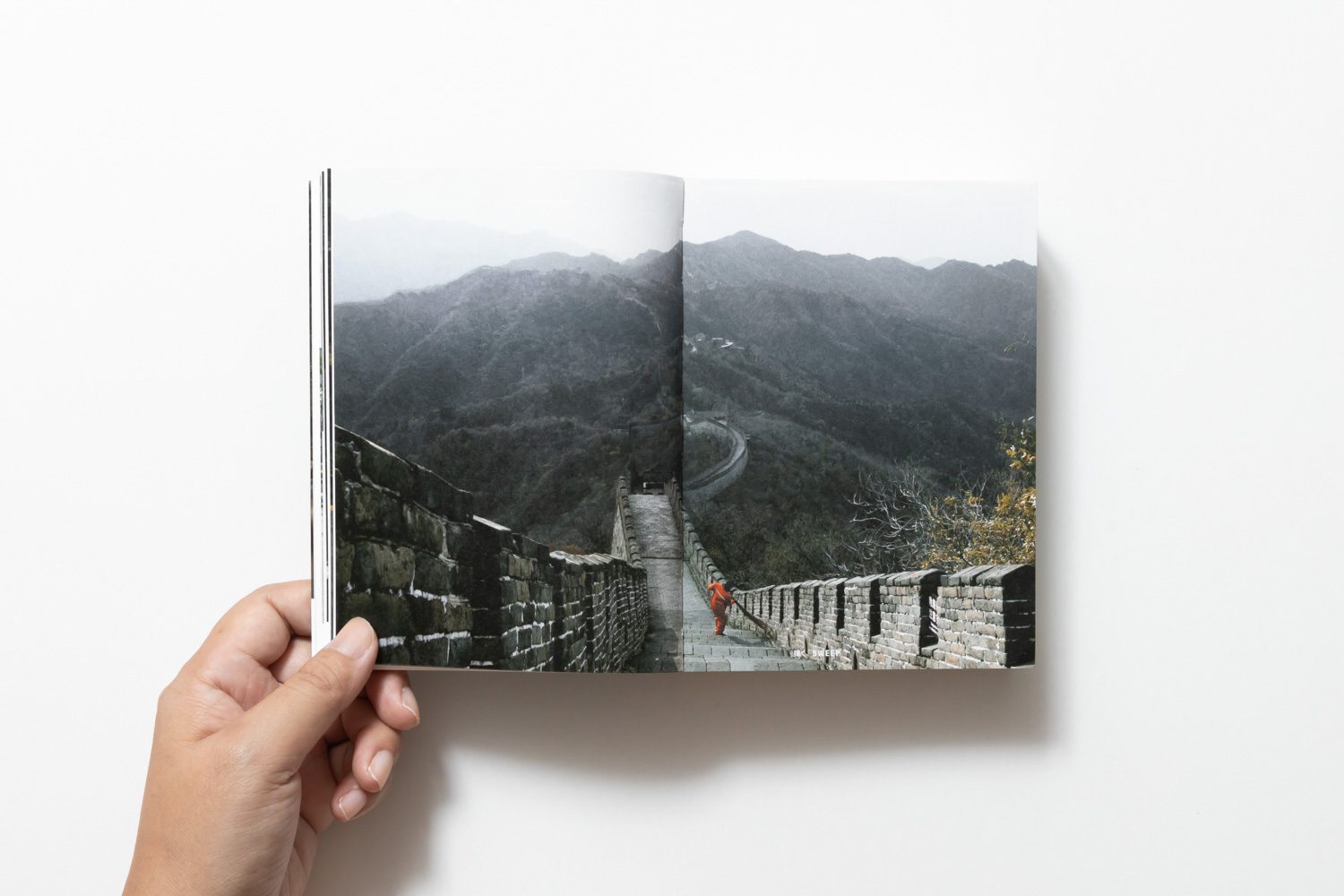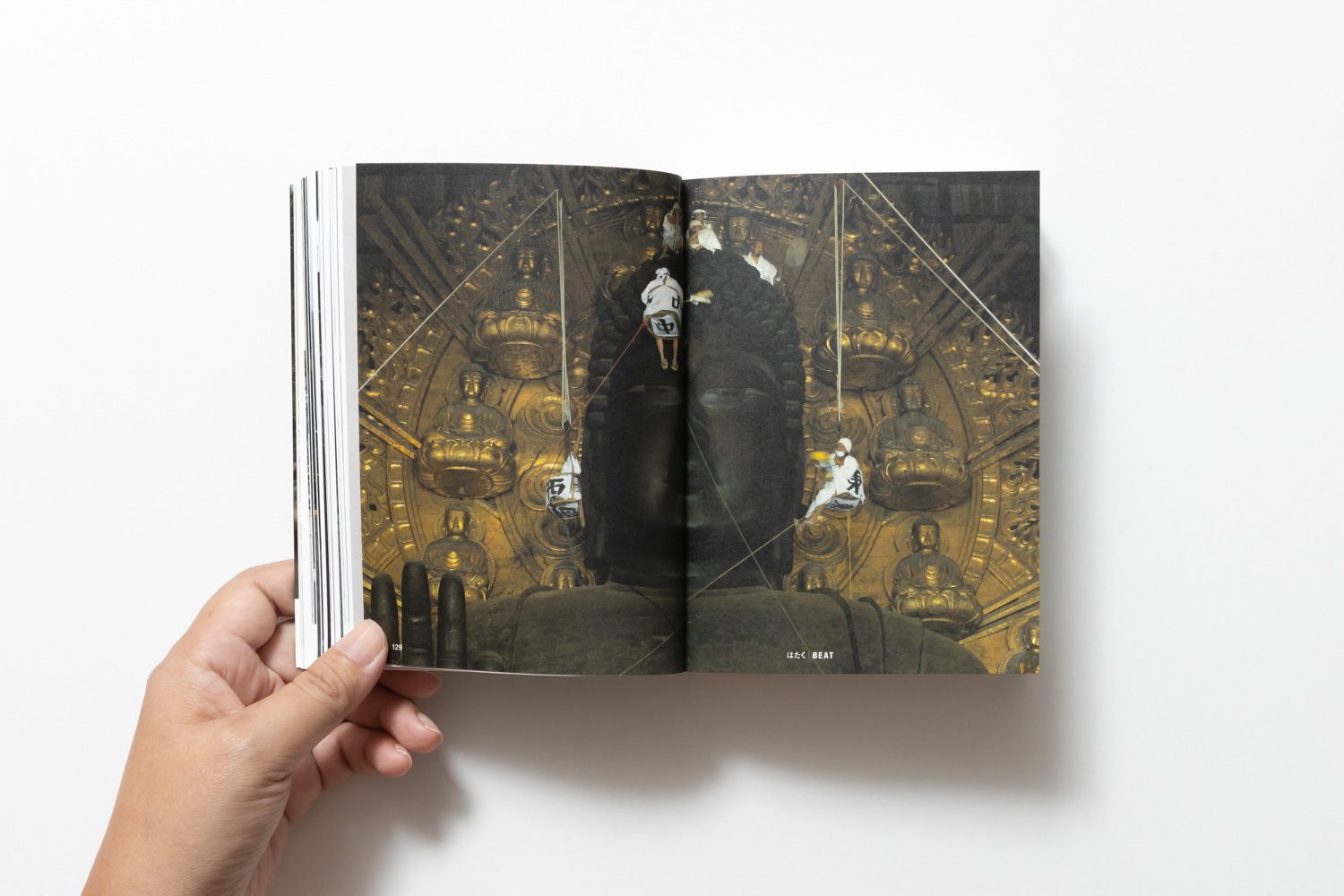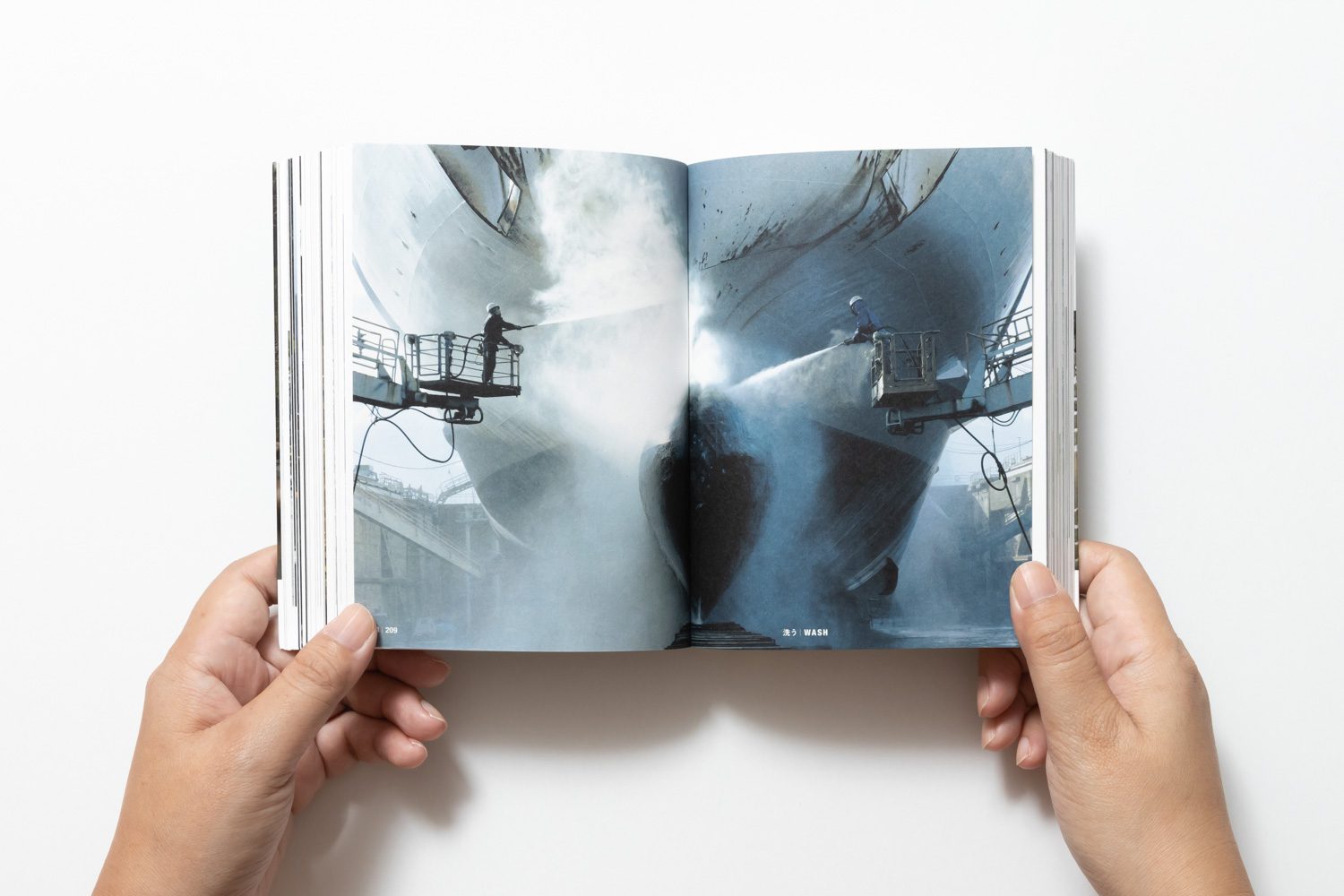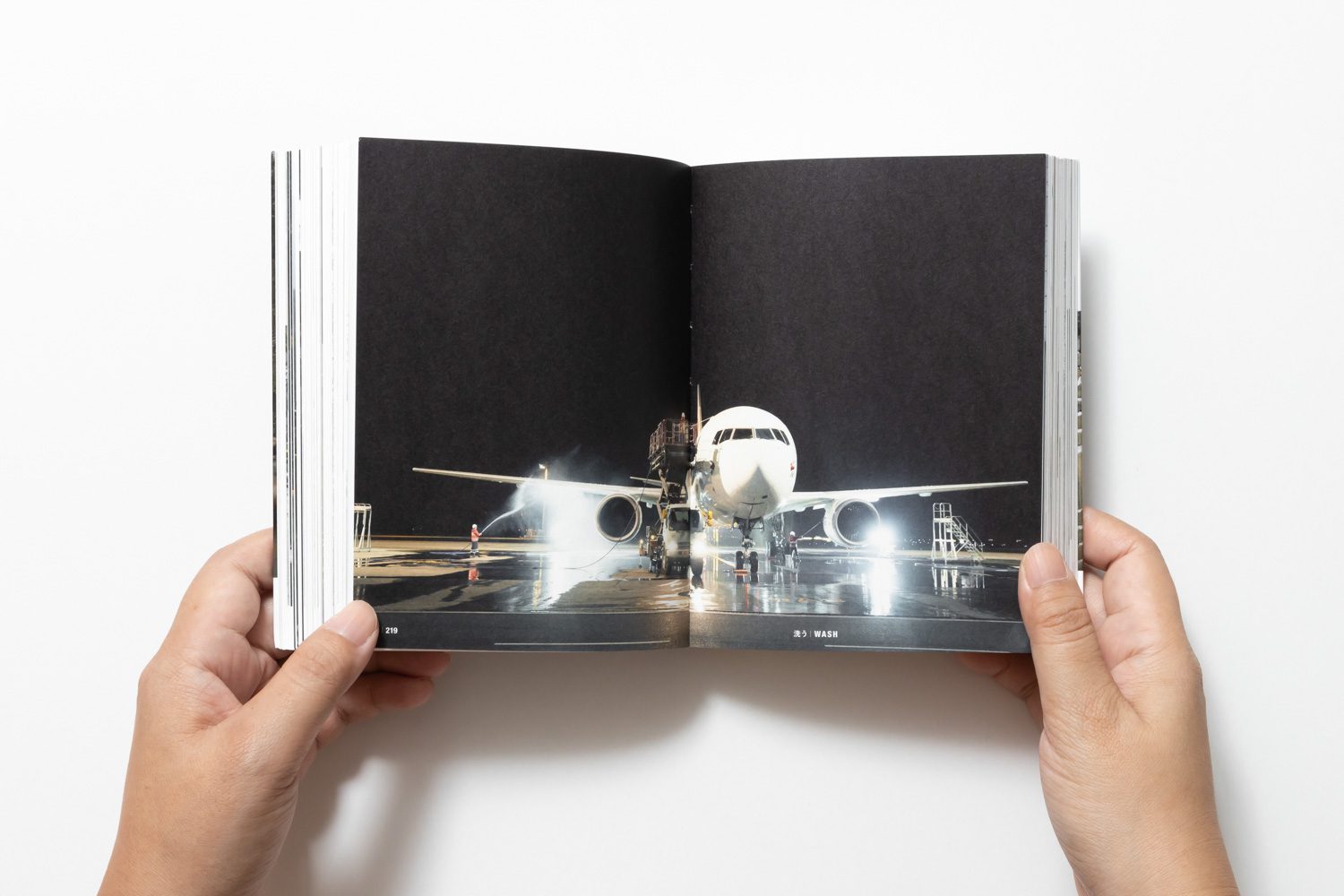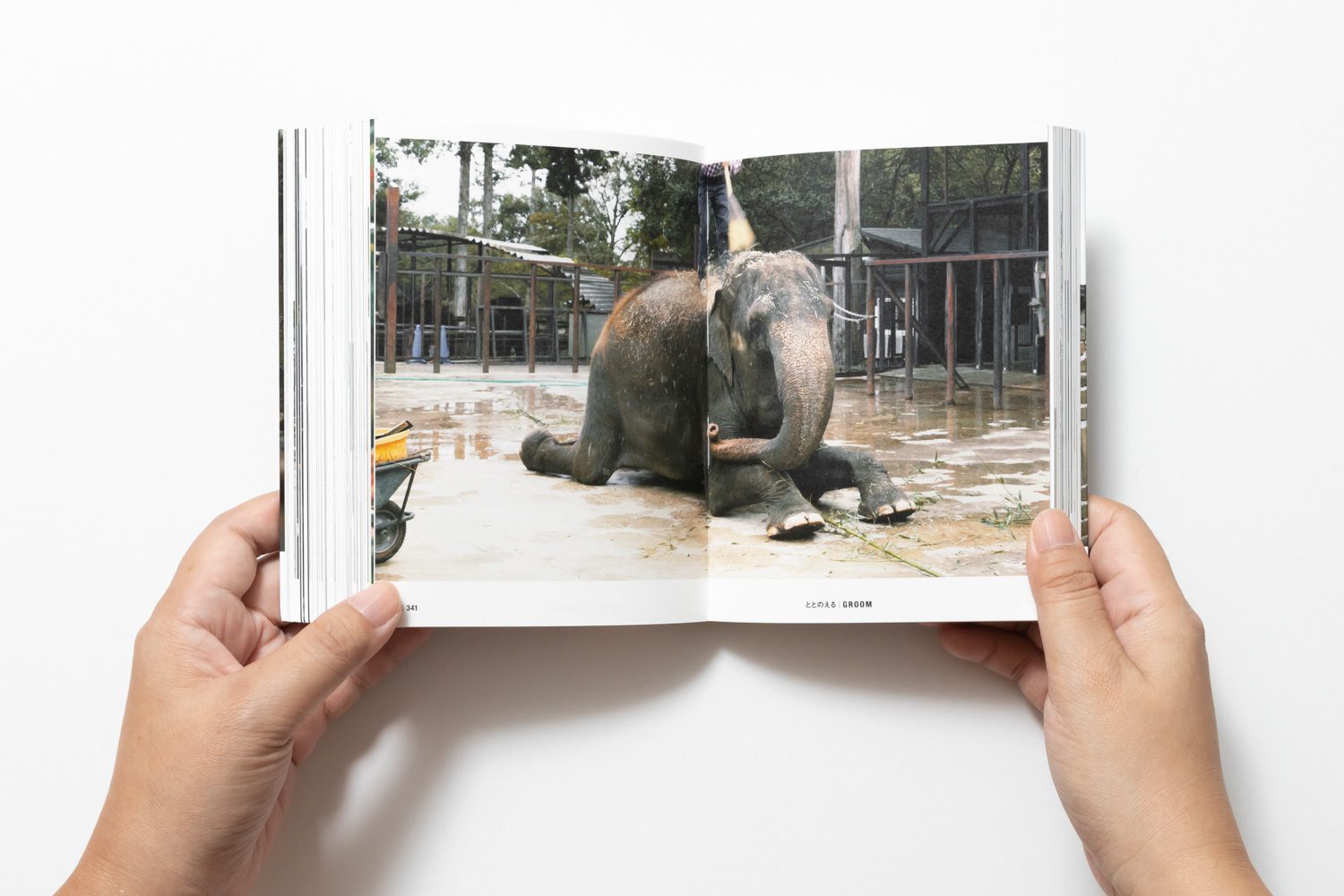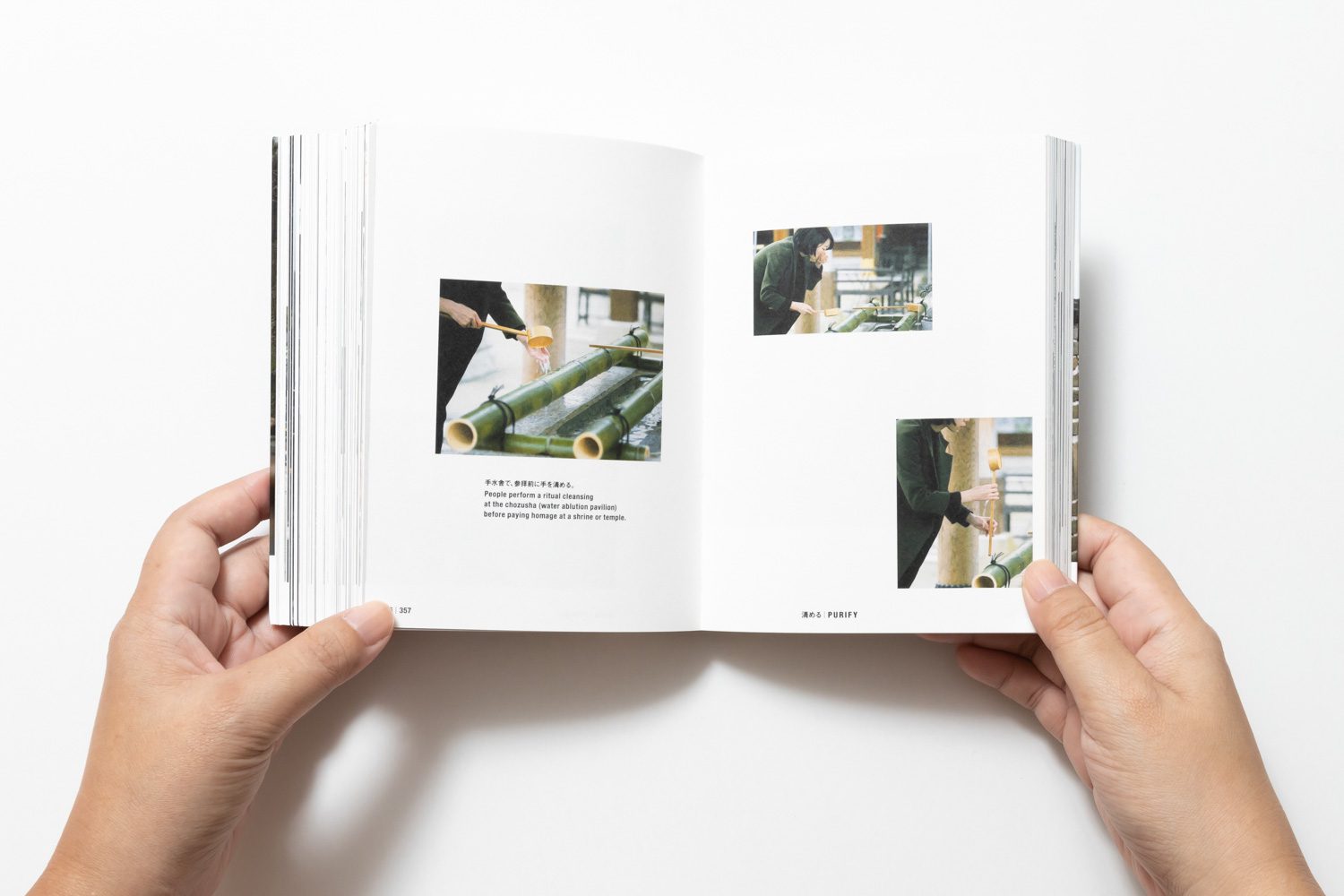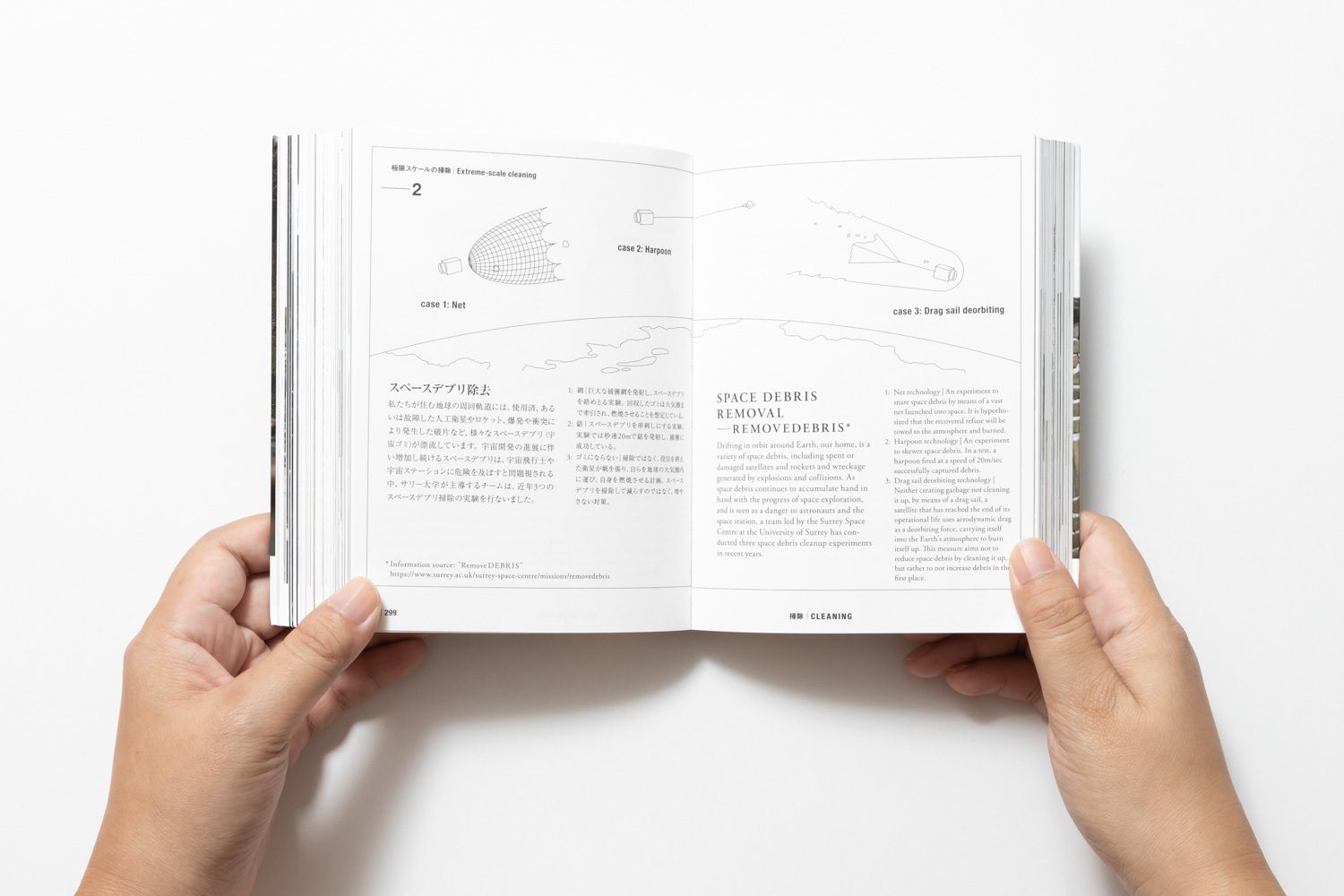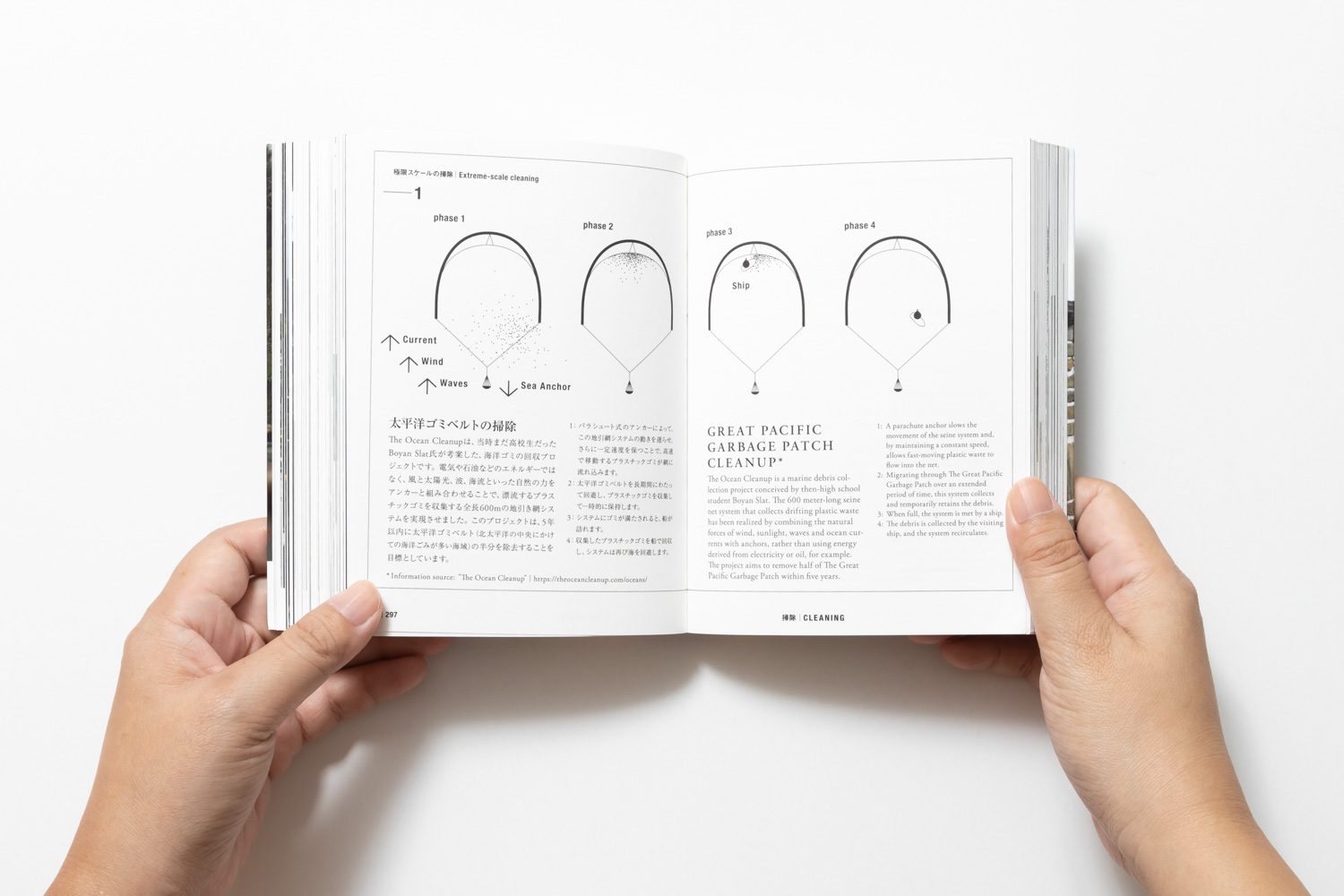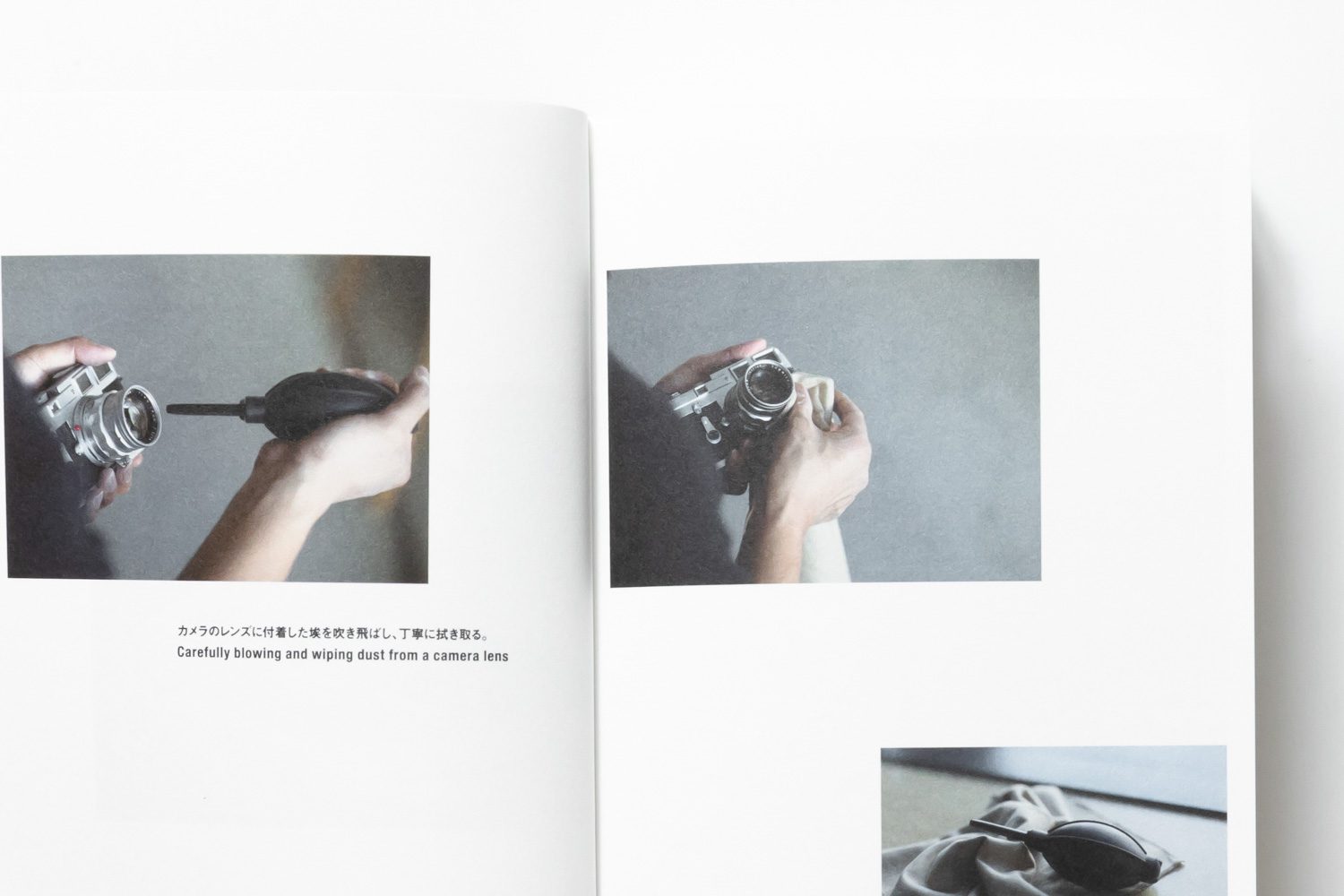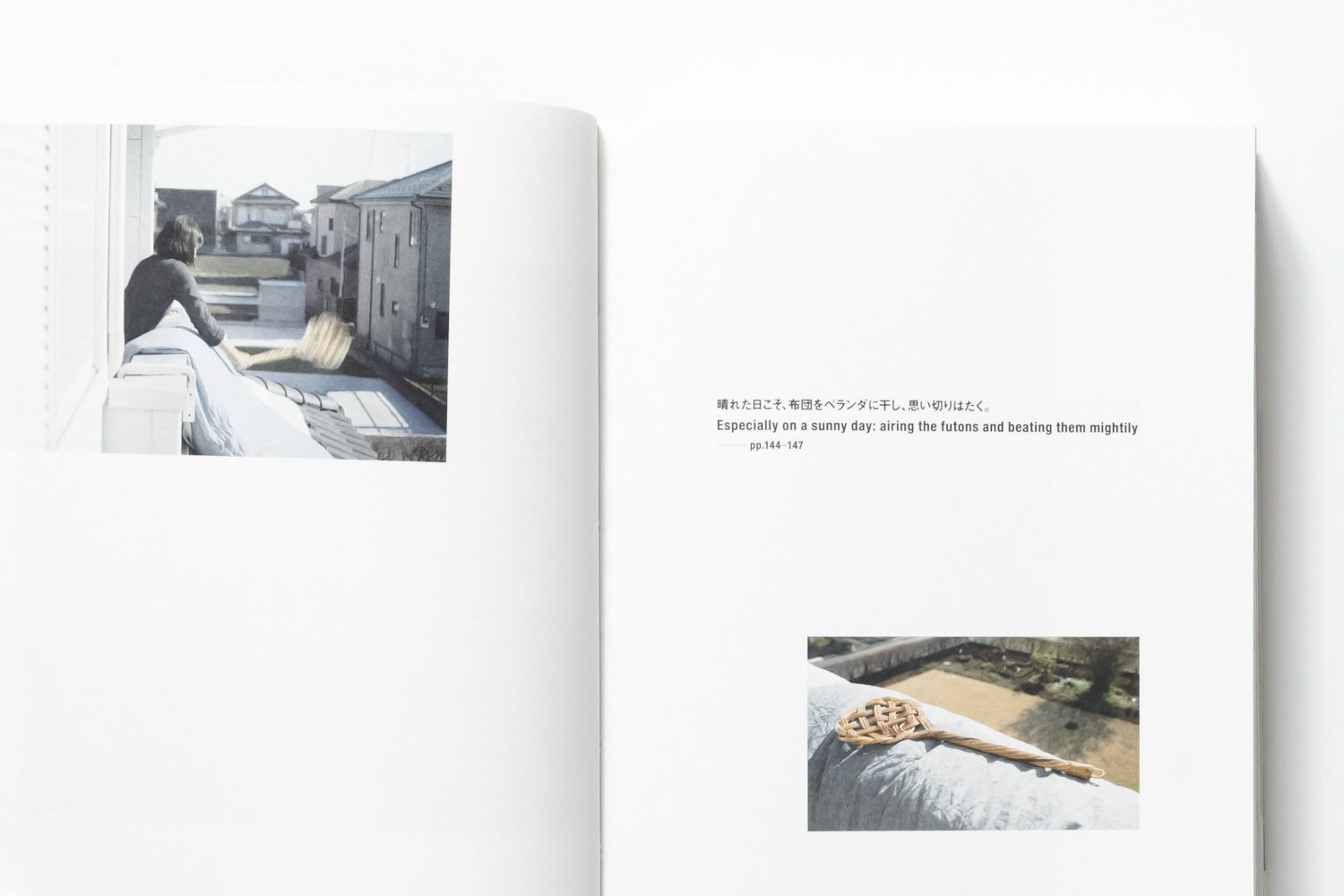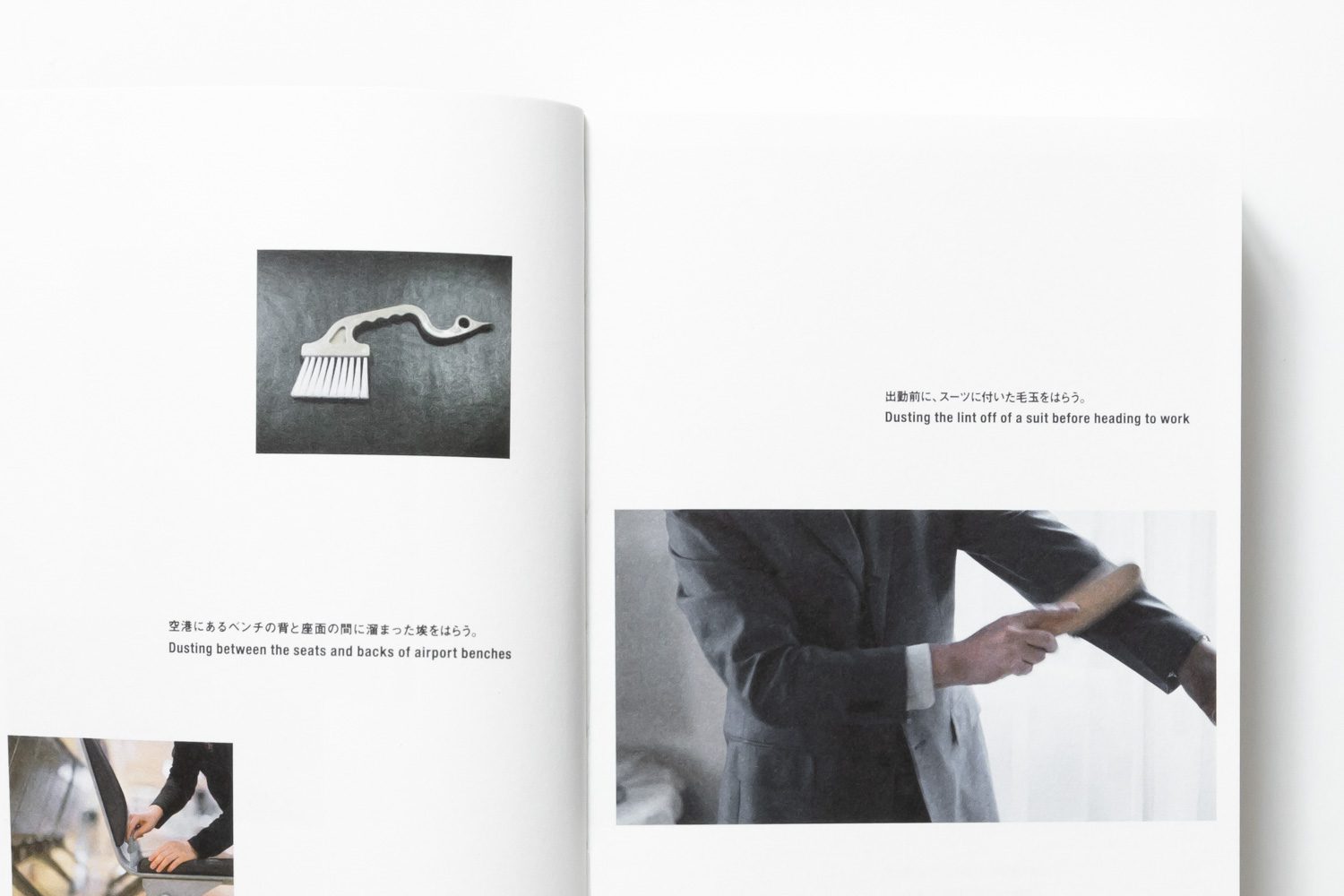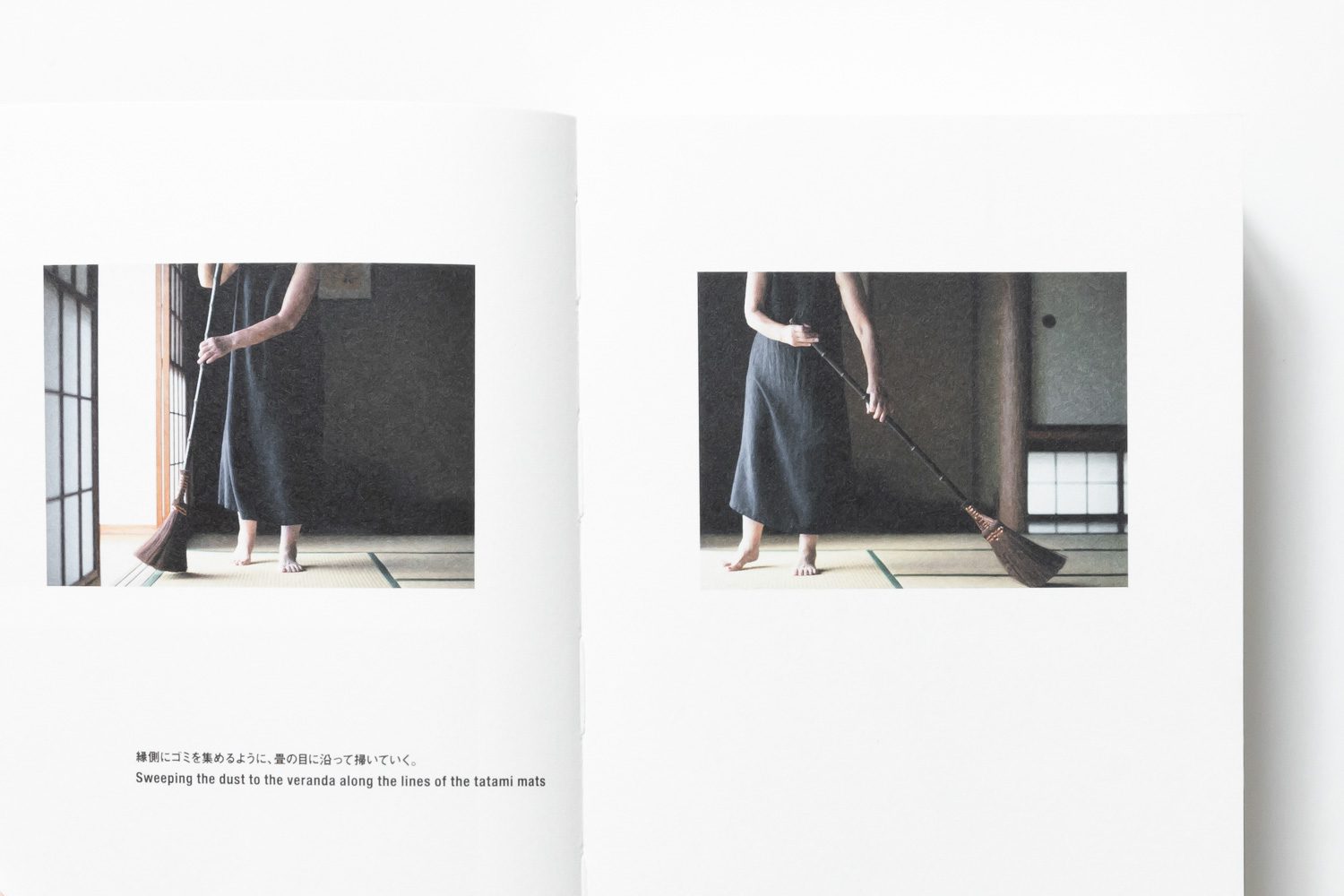FLIP THROUGH A PHOTO BOOK FROM MUJI THAT TAKES READERS TO EXPLORE THE EVERY MOMENT OF THE ACT OF CLEANING WHETHER IT BE PEOPLE WHO DEDICATE THEMSELVES TO KEEPING THE WORLD CLEAN, CLEANING TOOLS FROM DIFFERENT CULTURES, AND THE PROFOUND MEANING OF ‘CLEANING’
TEXT: PITI AMRARANGA
PHOTO: KETSIREE WONGWAN
(For Thai, press here)
Those who have recently visited larger branches of MUJI in Bangkok such as the one at Samyan Mitrtown probably noticed the massive posters on one of the walls in the shop. They’re images of a person cleaning a building’s windows, or a group of people washing carpets in a creek. The beautifully taken pictures with an enigmatic blurb ’Pleasant, somehow’ written has many wondering what it all means. Is this MUJI’s way of saying how their products are the source of our happiness and comfort?
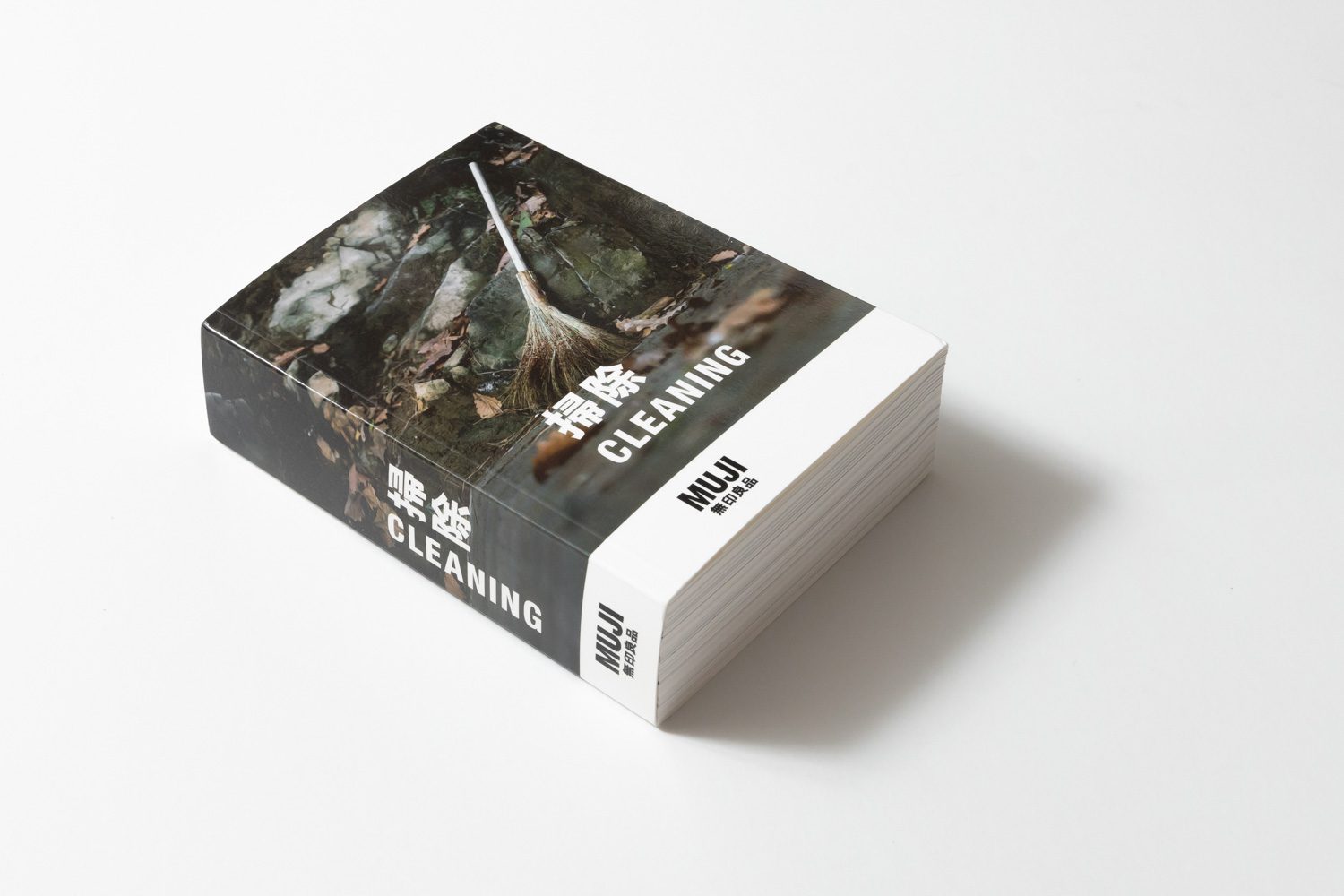
The photographs and the text are actually a part of 掃除 CLEANING, a project that has Kenya Hara as the art director. The project is part of the celebration of the brand’s 40th anniversary since its foundation in 1980, and comprises a one-minute long short film dedicated to the people who keep the world ‘clean’. The clip puts together footage of cleaning activities of various places and things, from large-scale objects such as airplanes and gargantuan Buddha sculptures, the floor of the Great Wall of China, to everyday activities such as house and road cleaning. Then there are images captured of activities that are a bit uncommon, like elephant bathing or cleaning a naval vessel, etc. All the activities were filmed in 2019 before COVID-19 started. With Ryuichi Sakamoto’s piano piece as the background music, an ordinary act of cleaning has viewers taking the time to contemplate the meaning behind each photograph.
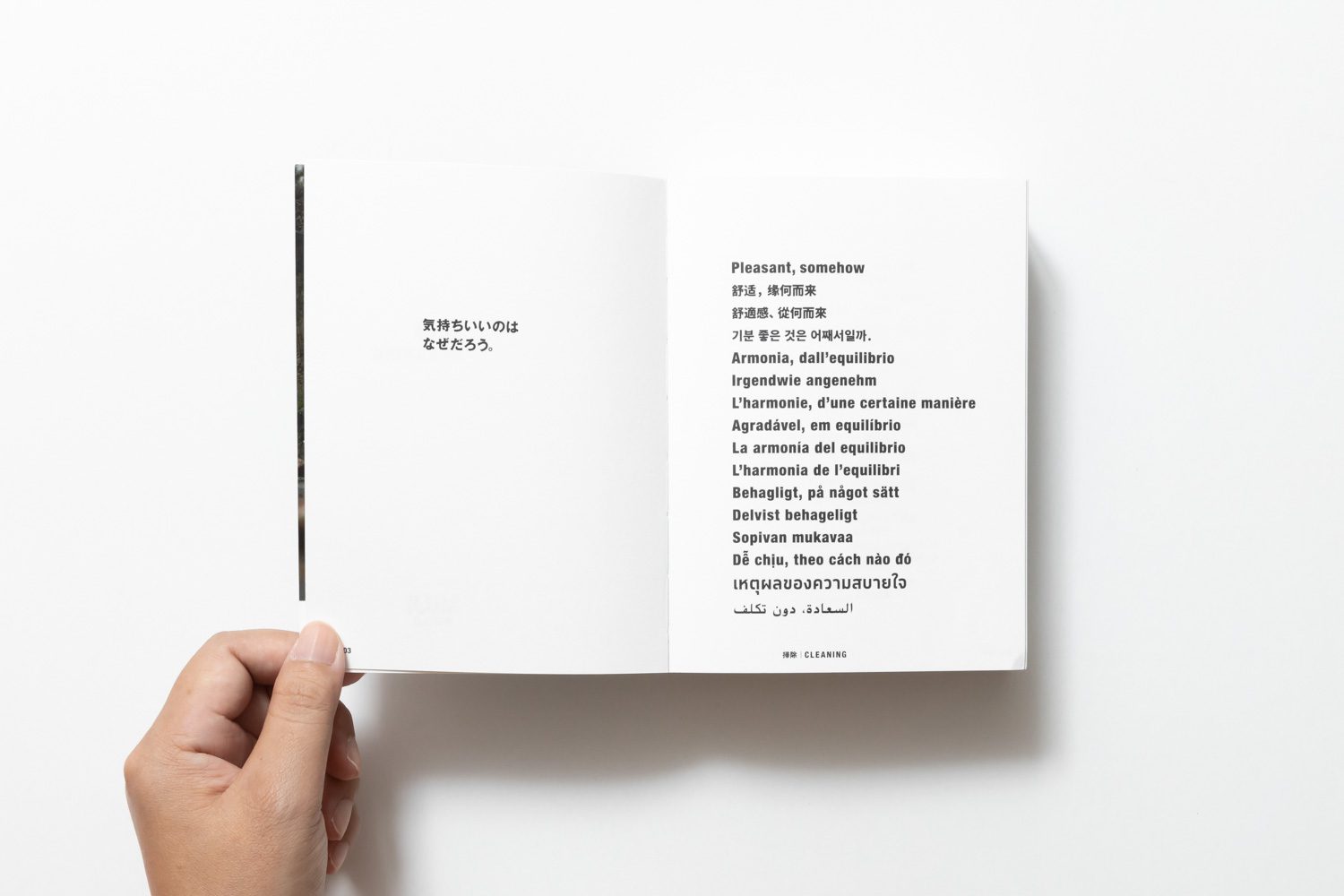

掃除 CLEANING also includes a small, 504-page, photo book. For the project’s more complete big picture, the photos have been selected and grouped into 16 categories of cleaning such as Sweep, Wash, Wipe, Trim, Scrub, ect. All the categories translated into16 languages including Thai, allowing readers to understand the theme and objective of the project without the need for elaborated translation. The photo book takes readers to explore the moment when the act of cleaning is being done, in both public and private spaces. The observation makes one feel as if they are the keeper of a place. It leads to a realization that a place doesn’t look all clean and tidy by itself. There are people whose jobs and responsibilities are to keep it that way. There are drawings of cleaning tools from different cultures, highlighting each tool’s appearance and functionality and how it was invented to serve a specific purpose. The photos include some cleansing processes, which occur as a part of spiritual or religious activities from how Muslim people wash their hands and feet before entering a mosque or the act of ‘cleansing’ a shrine to chase away bad luck. The notion of cleaning also extends to massive scale missions such as ocean cleaning and space garbage collection.
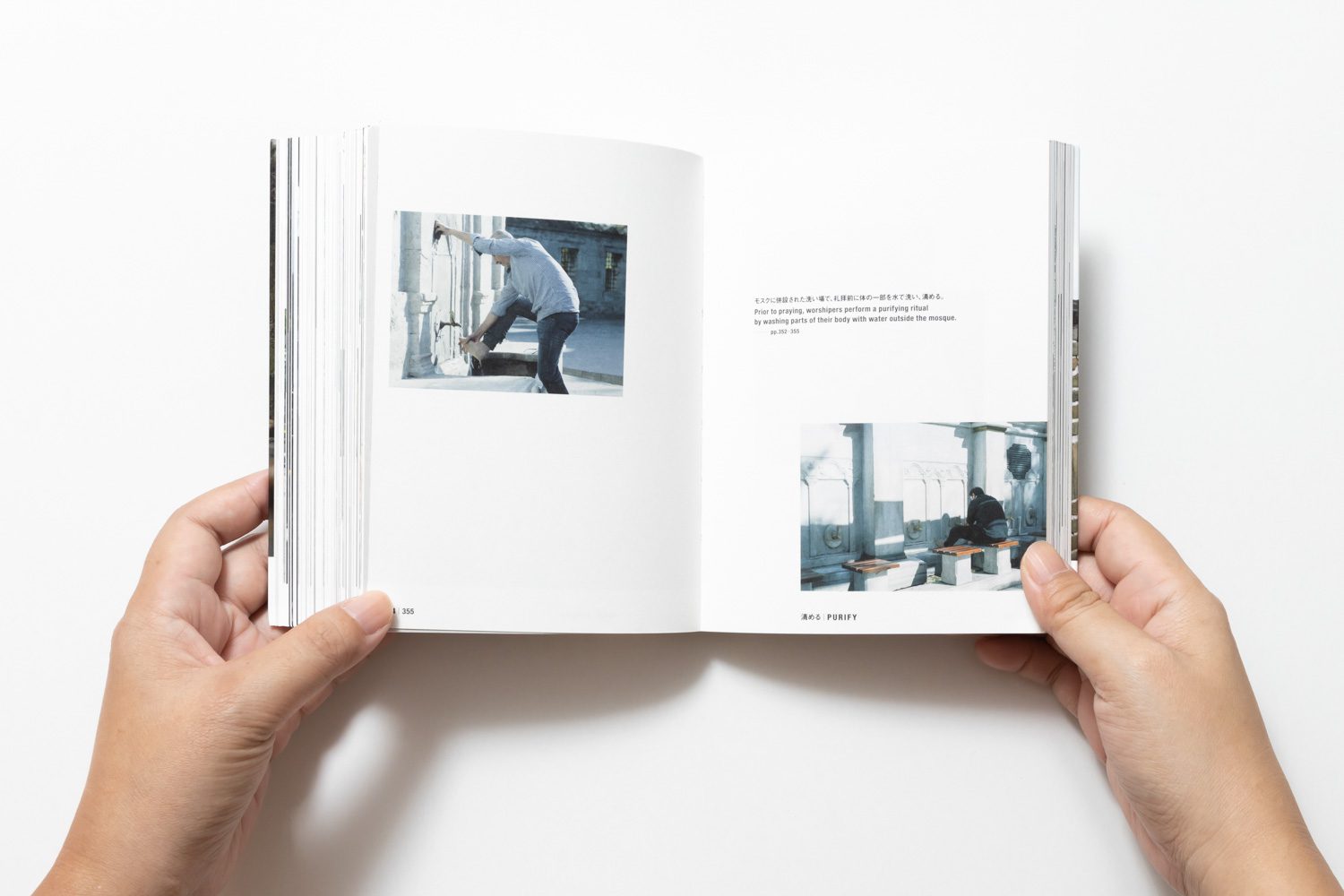
There’s a statement in the book that does not only explain but encapsulates the whole purpose of the project. “…we’ve always pondered that perhaps our human essence is hidden, existing but in silence, in the middle of all these mundane cleaning activities and routines.” What this statement got me thinking about is cleaning activities take place in every square meter of humans’ living spaces yet most of us rarely see them happening for they’re the kind of activity that happens before or after a space is open for public access. As a consumer, we see these spaces in their impeccable state and it seems like human beings are the only species that invents their own environment for their own convenience and comfort. Cleaning is also the kind of activity one tends to do alone, and it isn’t something that would normally be shared on social media.
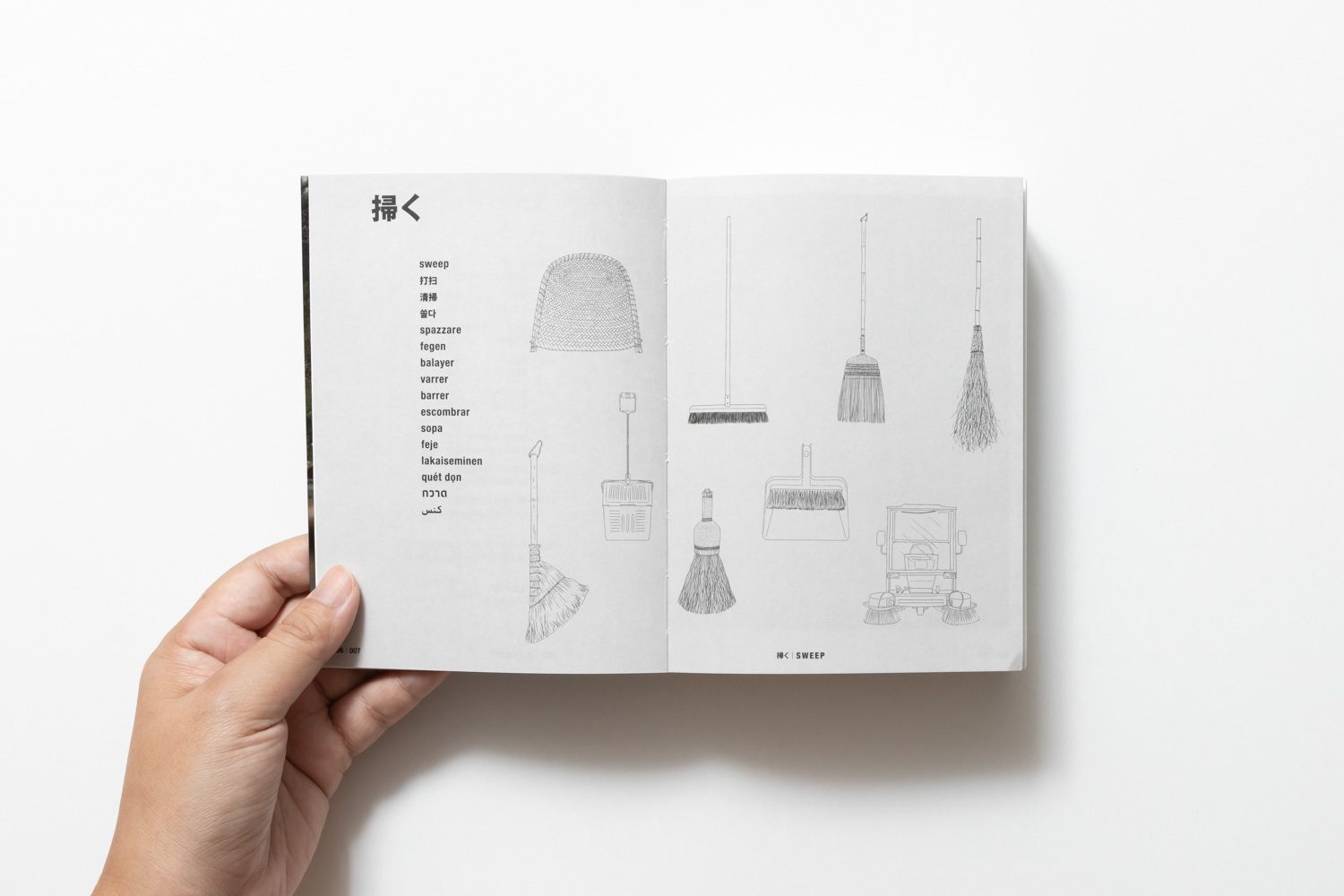
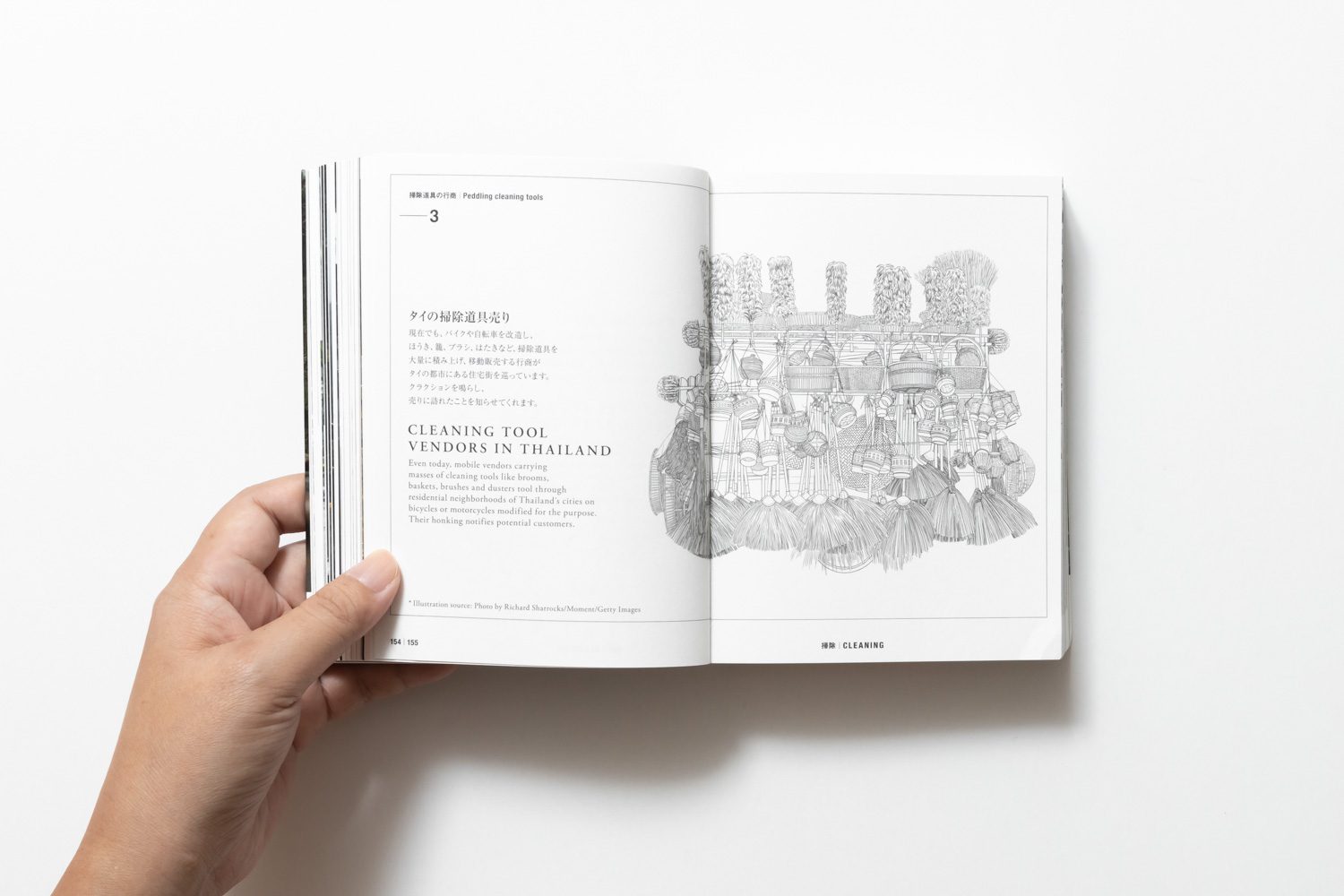
So to what lengths does a brand have to do to sell a broom, mop or a dustpan. There are more than a few pocket books about MUJI’s story that will help one understand the connection between the brand and this cleaning project. Another important reason is perhaps cleaning supplies is one of MUJI’s best selling product lines. It isn’t entirely surprising that the brand would communicate with its customers about something they find interesting and important. The focus is moderation, like sweeping up the fallen leaves in order to keep the ground nicely cleaned and maintain the balance between humans and nature. In the midst of one’s search for happiness through a simple way of life, either by following Kondo Marie’s Spark Joy philosophy or the hardcore minimalist approach (which are a trend), what MUJI proposes is more compromising; a sense of comfort that cleaning can offer.
To say that cleaning brings happiness, means that it’s a kind of happiness obtained through actions, which can be more pleasant with the help of beautiful looking and efficient cleaning tools. It’s the happiness one gets from walking up a mountain with a beautiful view as the reward. But cleaning is much more real than that. One cannot live in a cluttered, dirty house. Think of the days when your mother told you to clean the house and you didn’t really realize the merit of cleaning until you actually became an adult. Cleaning has always and will be something one does for the rest of their life, and it would be overbearing if we can’t find a brighter and more aesthetically pleasing side of these activities. This book is, therefore, a great mental support for us all.
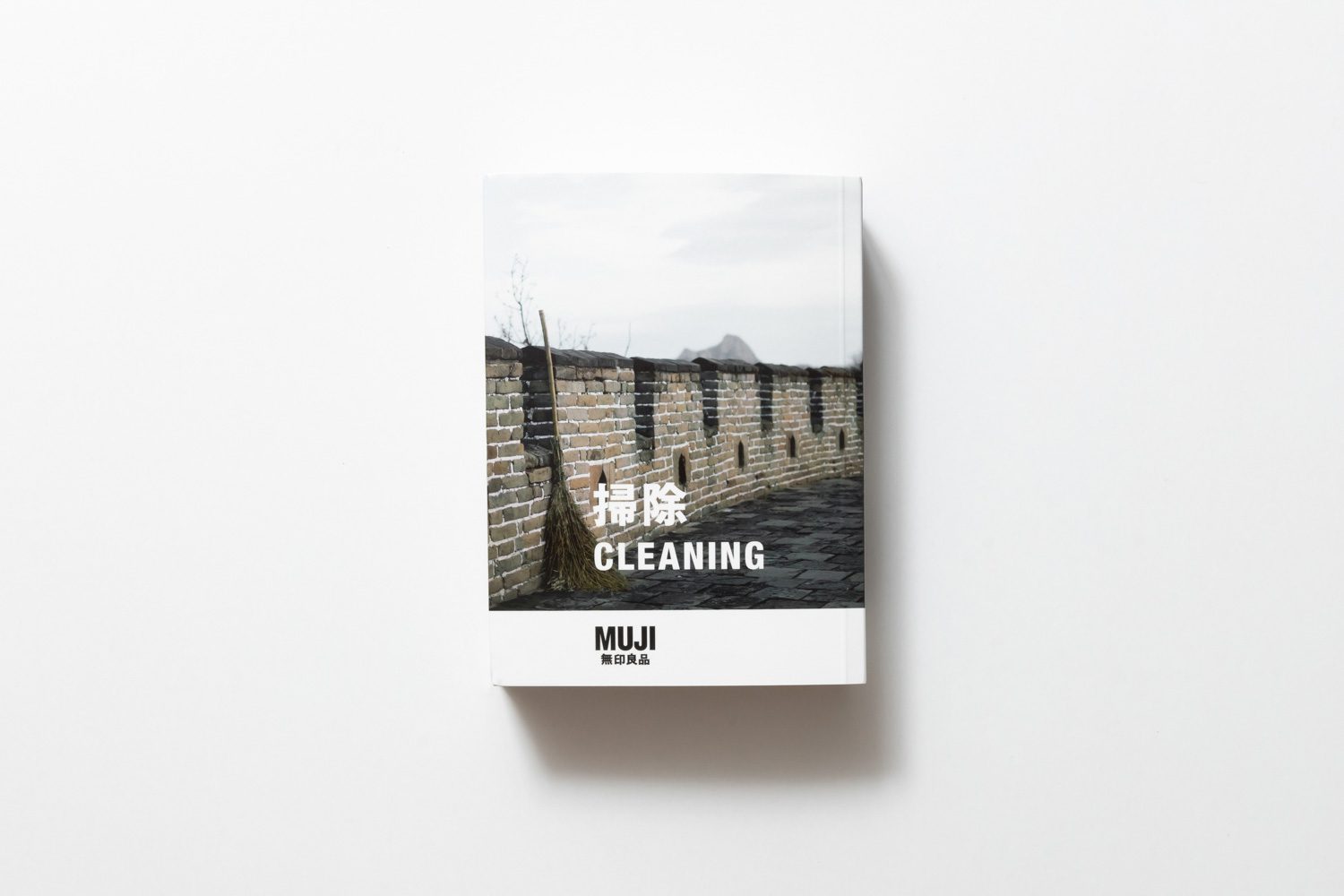
Flipping through the pages, seeing photographs of fellow human beings cleaning all types of things, it’s surprisingly delightful. The act of cleaning is no longer something one does and feels good about alone, for it has the ability to bring people energy. It makes one appreciative and emphatic that before a place is in such an impeccable state, someone is sweeping and wiping the floor, and before a nice sports car looks all crisp and clean, before a working of architecture can shine at its utmost beauty, there are real people taking good care of them. Cleaning is something you feel like procrastinating but you know deep down it will make you feel good and bring comfort. Maybe we all clean to leave a trace that we are still breathing; we are still here, living.
Watch the short film at muji.com/jp/message/2020/en


